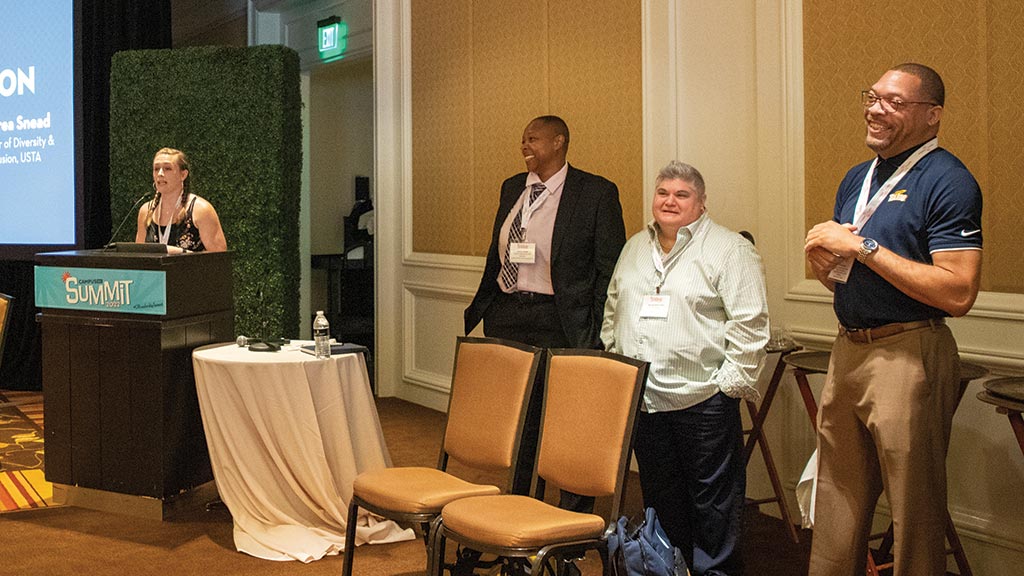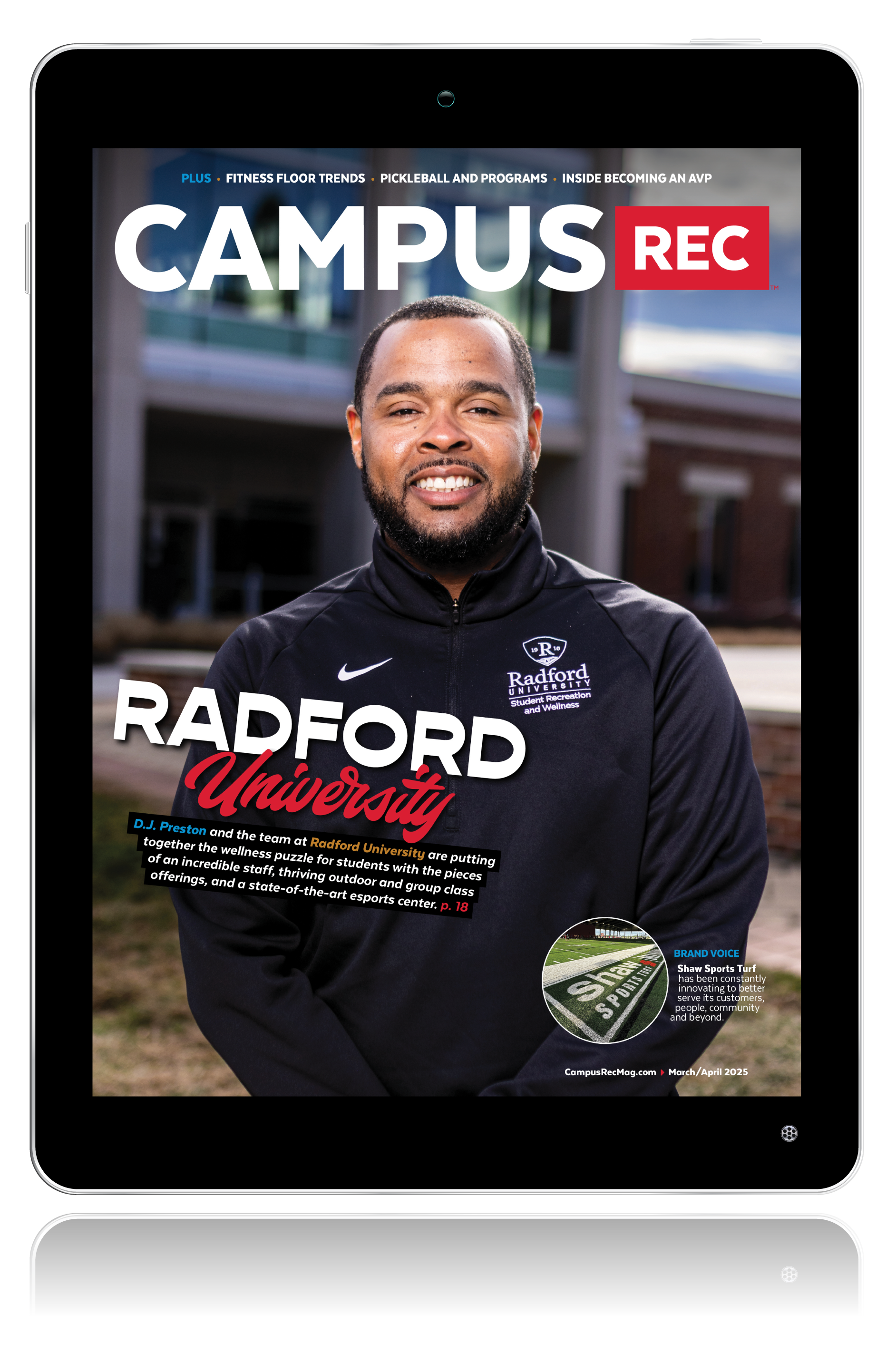The conversation of equity, diversity and inclusion (EDI) doesn’t start with your team or your staff. It starts with you on a personal level.
This was where Wendy Motch-Ellis began the conversation during the EDI Panel Discussion as part of the 2022 Campus Rec Leadership Summit.
Equity
“Where are you at and where are you moving forward personally?” asked Motch-Ellis, an industry consultant. “What are you doing to help someone feel good about their identity and truly be? What are you doing to make someone coil up?”
Motch-Ellis was one of three panelists during the opening session at the Summit. She was joined by Andrea Snead, the director of Diversity and Inclusion at the United States Tennis Association (USTA), and Demond Pryor, the assistant dean of Student Services and Leadership Programs/the director of the office of Recreational Services at the University of Toledo.
After a short icebreaker, Motch-Ellis dove into the topics of equity and allyship, using the NIRSA EDI Commission’s Identity Wheel. “When we talk about equity, we are talking about allowing people to get access to the resources people need to thrive,” she said.
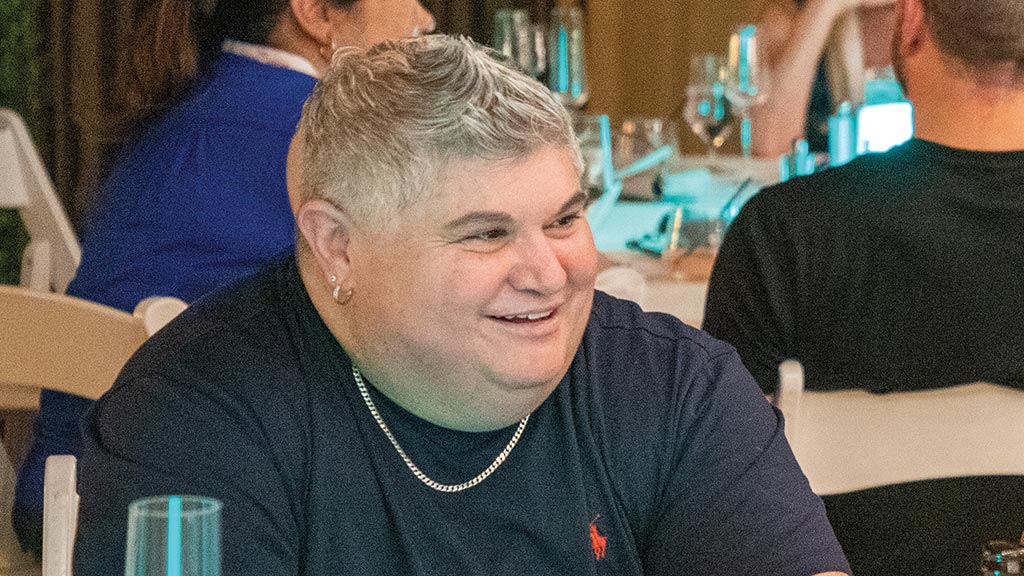
And that commitment to helping people thrive involves three levels: first, the level of awareness where one learns about general information and terminology on social justice and identities. Second, the level of inclusion. This level includes creating programs and services that foster inclusion. And third, the level of advocacy. Here, one develops policies, practices, etc. that advocate for EDI.
However, as the levels demonstrate, leaning into EDI work is a journey. Allyship is a growth process. Motch-Ellis noted it’s difficult, challenging and messy. “You’re going to step in the mud,” she said. “You need to be OK with getting some mud on your face.”
Diversity
Part of that journey is understanding diversity. However, that understanding starts with the definition of diversity. Snead talked about arriving at the USTA and how that word needed a clear definition in the organization. So, a new one was written: “Understanding, embracing and celebrating each other’s individual differences including — but not limited to — race, ethnicity, gender, gender identity, sexual orientation, ability, nationality, religious and spiritual beliefs, age and socio-economic background, as well as the intersections of these identities.”
One note Snead gave was that ability is the most forgotten part of diversity. As such, you need a strategy and definitions to make sure everyone in the organization and on the team is not only on the same page, but to also ensure a difference isn’t forgotten.
EXTRA CREDIT: Get more EDI resources here.
Beyond this, the fact you need partners both on and off campus was a crucial part of the panel discussion. “You can’t do it alone,” said Snead.
With that, Snead turned to the vendors in the room who made the Summit possible. She asked them to think about who they are working with. How can vendors be part of what campuses and campus recreation departments are doing?
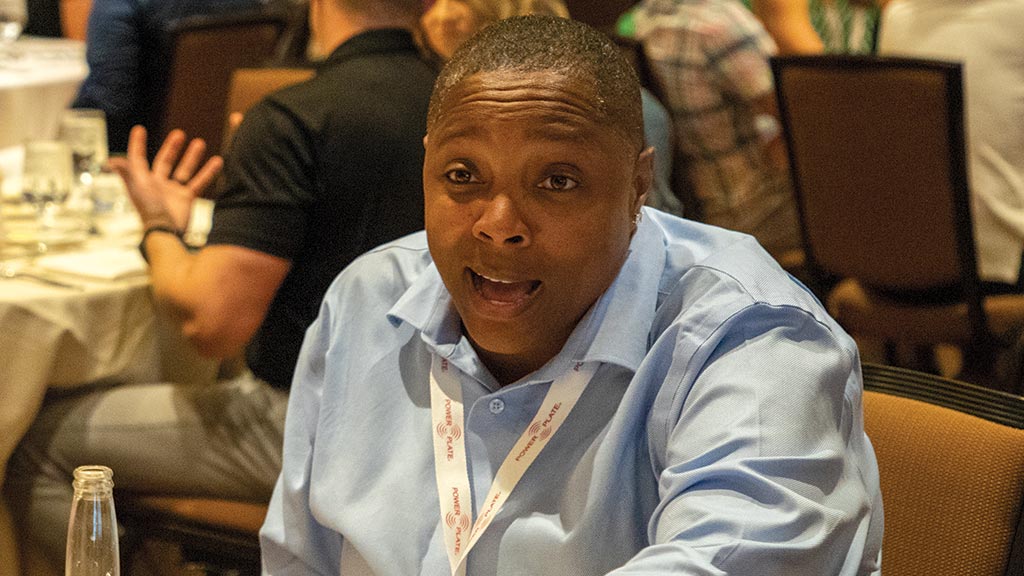
Pryor also called on the vendors, noting if they want the business of campus rec directors they need to show they are representing the people they serve. That’s through a diverse staff, diverse marketing, etc. “You’re servicing our community,” he said.
Inclusion
When it comes down to it, that community needs to be built around an environment of inclusion, or in other words, belonging. Pryor said it starts with being intentional as a leader, ensuring the entire team knows you will have a diverse and inclusive environment.
In addition, it needs to be in one’s mission, vision, values and hiring practices. “Members, when visiting, should feel welcomed, engaged, connected and motivated to return,” said Pryor, quoting their motto at the University of Toledo.
All of this starts with the leader of the campus rec department on each campus. Pryor noted as a director, you get to set the course of where your university is going.
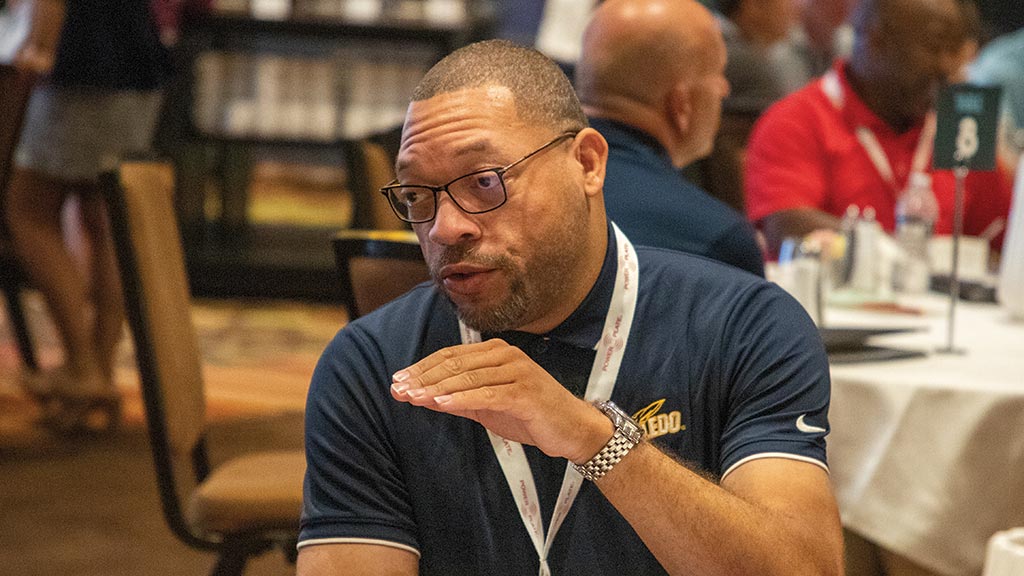
It means you need to be trustworthy and consistent. And that consistency comes from if you say you’re going to do something, do it. Messaging must be consistent and your community — students, faculty and staff — need to know you care.
Finally, you must ask the question, “How are you using your privilege as a leader to make the environment you work in inclusive?” As Snead pointed out, privilege isn’t just one thing. Recognize your privilege and use it.
The panel discussion wrapped up with a small group discussion and sharing what was learned. All in all, the hope was to prompt further discussions and self-work in the area of EDI to better the leaders of the campus rec industry.
So, what can you do next to continue this journey, both professionally and personally?



